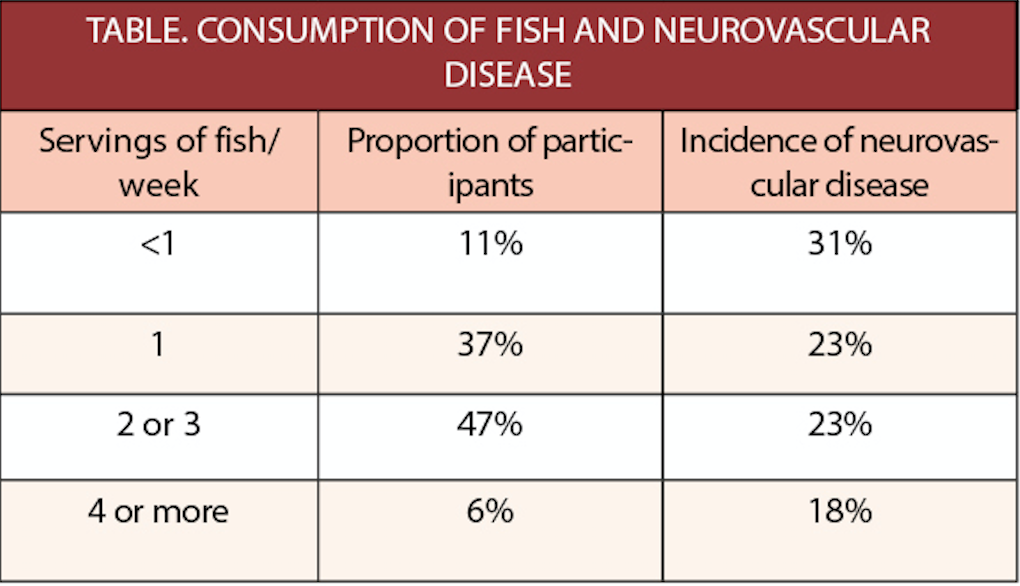Eating Fish May Lower Risk Later in Life of Developing Neurovascular Disease
As published in Neurology, individuals from the age of 65 to 75 who eat 2 or more servings of fish a week, including salmon, tuna and sardines, may have lower risk of developing neurovascular disease later in life.
“Our results are exciting because they show something as simple as eating 2 or more servings of fish each week is associated with fewer brain lesions and other markers of vascular brain damage, long before obvious signs of dementia appear,” said study author Cecilia Samieri, PhD, of the University of Bordeaux in France. “However, eating that much fish did not have a protective effect in people 75 years of age and older.”
The study looked at 1,623 participants who did not have dementia, stroke, or a history of cardiovascular disease. White matter hyperintensities, covert infarcts, and enlarged perivascular spaces were used to identify neurovascular disease. Across all participants, 8% had covert infarcts and 6% had severe dilated perivascular spaces, and 2% of brain volume was accounted for by hyperintensities.

For participants who were in their 60s, eating fish 2 to 3 times a week reduced risk as effectively as not having hypertension would. Eating fish 4 or more times a week doubled that benefit.
"More research is needed to help us understand the mechanism of how eating fish may preserve brain vascular health, because diet is a factor people can modify to possibly decrease their risk of cognitive decline and even dementia later in life,” Samieri said.
